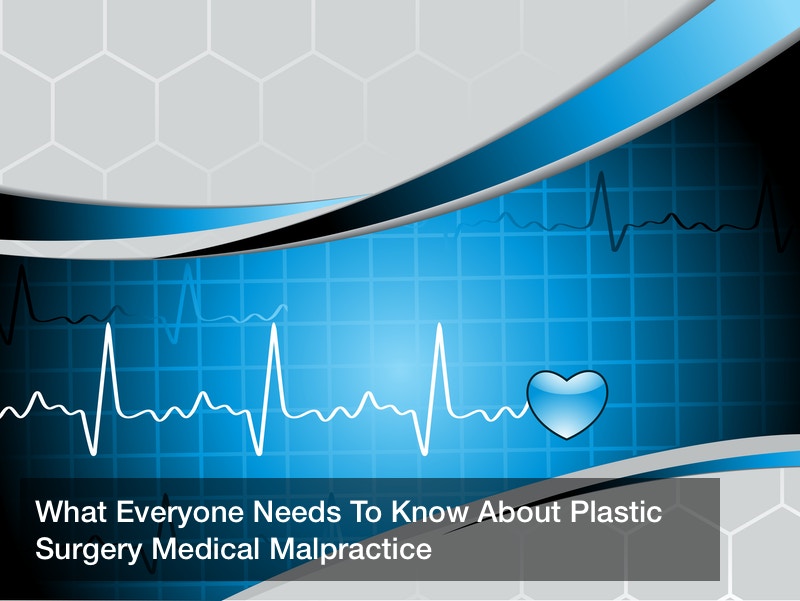Disclaimer: This website shares legal information for educational purposes only and does not constitute legal advice. Please consult a licensed attorney for advice specific to your situation.
There is no shame in having cosmetic surgery performed in this day and age. There were 18.1 million cosmetic procedures performed nationwide in 2019 alone throughout the U.S., and it’s also becoming increasingly more accepted across the world. In fact, in certain countries like South Korea, it’s not uncommon for cosmetic procedures to be gifted to young adults by their families, often on occasions like a graduation.
Cosmetic surgery is accepted as something that is done not only to make people look better in their own perspectives but feel more confident about themselves. Furthermore, it’s been made very clear that certain cosmetic procedures can have health benefits as well. People no longer just use Botox injection to smooth out their wrinkles, but they can also be used to treat migraines. A rhinoplasty can be used to not only improve the appearance of the nose but to open up the nasal airways. Furthermore, many jaws surgeries that are deemed cosmetic by some are prescribed by doctors in order to alleviate jaw pain and to better align the bite. Put simply, cosmetic procedures simply aren’t taboo anymore, which means that more people are getting them.
But just because more people are getting them, that doesn’t mean that all of the medical professionals administering these procedures are doing everything correctly. Unfortunately, there has been something of a bandwagon effect surrounding cosmetic procedures. Injectables, which still are medical procedures, are often treated somewhat casually, as if nothing could go wrong with filler or Botox. And furthermore, some surgeries can be more complex than doctors realize, leading to a cosmetic procedure having a bad outcome.
And though you shouldn’t necessarily be afraid of cosmetic surgeries, bad outcomes are possible. This could be as minor, though still serious — like a procedure not giving you the look that you wanted and expected. Alternatively, it could be as serious as complications that lead to death. Surgeries, in particular, can be dangerous and patients may underestimate the hazards of going under the knife.
This is why, perhaps, we may see a rise in plastic surgery medical malpractice cases. Even though you may have elected to have an elective medical procedure done, your doctors are still under an obligation to take care of you. It’s important that plastic surgeons are held accountable when they make mistakes and that the victims of those mistakes are compensated in a way that recognizes the financial, physical, and emotional toll that a botched cosmetic surgery can cause. Below, let’s explore the issues surrounding plastic surgery and medical malpractice — and what to do if it happens to you.

What Are the Risks Surrounding Plastic Surgery?
As previously mentioned, though plastic surgery is elective and generally isn’t overly dangerous, cosmetic surgery is still surgery. There are issues that you need to consider before going under the knife and a responsible plastic surgeon should discuss these with you ahead of time.
When doctors do not make potential complications totally clear to patients prior to surgery and proceed while fully aware that the patient has not been well-informed, this could act as the basis of some plastic surgery medical malpractice cases. Anesthesia is always something of a risk, as some people can respond badly or unpredictably to it. Furthermore, different factors — like age, weight, and preexisting conditions — can make you more likely to suffer from anesthesia-related complications.
Blood loss can also occur as a result of cosmetic surgery. If controlled, it’s not much of an issue, as some level of blood loss typically occurs within any surgery. But if the surgeons don’t have this under control, blood loss can lead to severe consequences. It can also occur internally after any surgery if the surgeon did not close the surgical site properly or missed a bleed during surgery.
Many cosmetic procedures surround sensitive areas of the body, which means there is a risk for nerve damage. This is particularly common with regards to breast augmentation, so women should be warned about it. If a doctor is not careful and damages a nerve during, say, a face lift procedure, your ability to move your face and emote the way that you did before could be affected. This would obviously have devastating consequences for any patient. Other potential complications include blood clots, which can be potentially deadly, as well as hematomas and scarring that could leave you looking worse than you felt you did before the surgery.
Furthermore, patients who are not well-informed by their doctors or are not monitored by their doctors post-surgery could be at risk of developing infections. Some infections can occur because a patient ignored medical advice. Others may even be linked to a lack of sanitary conditions during surgery, as seen in extreme plastic surgery medical malpractice cases. But surgeons are responsible for at least setting up their patients for a smooth recovery and should also insist on follow-up checkups to see if any further procedures are needed and to check on how the wounds are healing.
Some complications of plastic surgery can take months to fully appear, so it’s important for patients to monitor their recoveries with photos and even videos. A good doctor will encourage this and may even ask for photos as you recover so that they can assess for themselves whether or not you need to come in and have your surgical site examined. Furthermore, a good plastic surgeon will not take on every single person who comes to them looking for a procedure. They will not only be able to assess whether or not a person should have further plastic surgery, as some can have surgeries too frequently, which is risky. They’ll also be able to assess whether or not a patient is a good candidate for a procedure, and if not, either turn them away or recommend a different option. A responsible plastic surgeon will not simply give surgeries to everyone for their own gain and will make responsible decisions regarding when to say no.

When Can Plastic Surgery Result In Medical Malpractice?
When we think about medical malpractice, we don’t often consider plastic surgery medical malpractice cases very seriously. Medical malpractice is often associated with surgeries that are meant to save lives. However, medical malpractice can very much occur during plastic surgery, as well.
Essentially, medical malpractice is defined as when a doctor fails to give all of the care that is necessary, which results in their patients being hurt or even killed. There is a strict standard of care that plastic surgeons must follow, just like any other doctor. Just because the goal of plastic surgery is different than that of other surgeries doesn’t mean that their standard of care should be lower. The outcome of poor care can be the same either way. If a neurosurgeon does something during surgery that results in you needing to go to physical rehabilitation afterward, it’s no worse than when a plastic surgeon does the same.
Plastic surgeons must follow certain duties. As previously discussed, they must obtain informed consent for all procedures, which means that they need to warn patients about all of the possible risks and the level of care that a good recovery will require. They also need to obtain your full medical history before committing to a surgery, as this can inform whether or not the plastic surgeon decides that you are fit for surgery. If they move forward without accessing your medical history and you then suffer from complications that could have been avoided had they obtained that history, you need to start researching plastic surgery medical malpractice cases.
Of course, surgical errors are another source of plastic surgery medical malpractice cases. Surgical errors could range from failing to check the anesthesia levels to operating on the wrong body part. At times, medical crises occur during surgery that were impossible for a doctor to avoid or handle. This doesn’t necessarily equate to medical malpractice. There has to be some level of egregiousness to the errors, and furthermore, they must truly be errors on the part of the surgeon, rather than an attempt to control a medical crisis that spiraled out of control. Often, it can be difficult to access the information about what exactly happened during surgery, especially if you’re recovering from a bad procedure. But after you’re done receiving flowers and convalescing, you need to think about talking to a medical malpractice attorney to explore what can be done.

Why Do People Pursue Plastic Surgery Medical Malpractice Cases?
There are a number of reasons why you may be looking into plastic surgery medical malpractice cases. If you believe that you or a loved one was the victim of malpractice, there is a certain degree of responsibility that you’ll likely want the surgeon to take. Furthermore, a medical malpractice case of any kind can make something of a moral stand. Doctors wield a lot of power and there’s a reason why we turn to surgeons rather than relying upon family medical care to address these concerns. If a plastic surgeon operated in a way that hurt you, temporarily or permanently, you may see your malpractice case a mission to ensure that they don’t hurt anyone else in the future.
There is also the issue of money to consider. Nobody should pursue any kind of personal injury case in order to “make money.” This is wholly unethical and could dip into illegality if you’re making up problems in order to strengthen your case. It’s also not plausible. Medical malpractice awards or settlements are usually given to cover the medical expenses associated with medical malpractice, as well as the time during which an individual could have been working. These awards can also address emotional trauma which, like physical injuries, could interfere with their everyday lives.
Keep in mind that in the cases of many, plastic surgeries are not covered by medical insurance. This means that not only would you be paying for your surgery out of pocket, but you’ll also be paying for the medical expenses that come with treating issues caused by a doctor’s error. Some of these expenses could very well become a part of your life for the long term, if a complication has left you permanently disabled. This is why plastic surgery medical malpractice cases exist and why they should be taken seriously.

Should I Hire A Lawyer To Pursue My Case?
The short answer is yes, you should hire a lawyer to pursue your cases. Though you can pursue plastic surgery medical malpractice cases without an attorney, this is ill-advised. These types of cases are complex and it’s easy to make mistakes that could cost you the case. Furthermore, a lawyer will be able to help you research and will be able to build your case.
Plastic surgery can be difficult for some to understand. They may ask, if unfairly, why you didn’t look into visiting any of the top yoga franchises in your area, rather than getting a tummy tuck. A lawyer can help you divert attention away from the fact that your medical malpractice occurred during a plastic surgery and move the conversation to where it belongs: the errors that occurred during or around your surgery.
Another benefit of working with a lawyer is that they may be able to facilitate an early settlement before the case goes to court, with terms that will meet your needs. Most personal injury lawsuits are settled, rather than going to trial. And this isn’t a bad thing. This way, you won’t have to worry about a judge questioning why you didn’t buy running shoes and jog your way to the body that you want, versus choosing plastic surgery. Settlements cut down the stress of plastic surgery medical malpractice cases and make it easier for you to get what you need. Having a lawyer by your side may also raise the size of your settlement.
Remember: just because you chose a surgery rather than being forced to get it, that doesn’t mean that it’s okay if something went wrong. Protect your own rights and consult with a malpractice attorney about whether or not you have a case.


